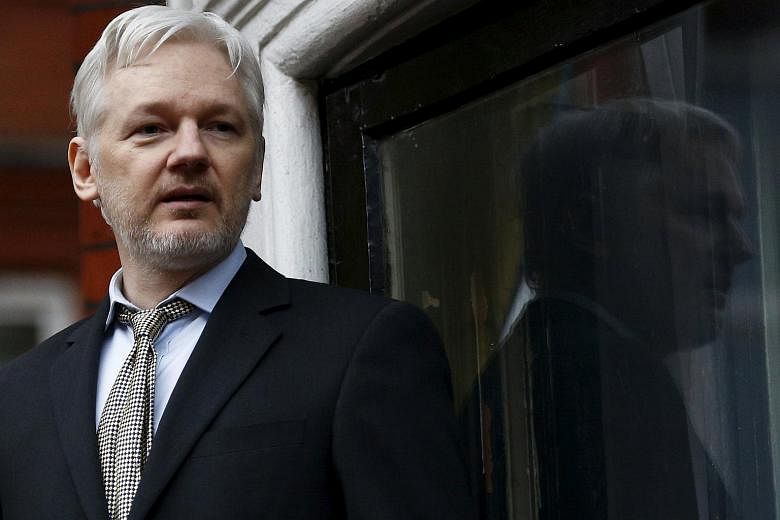LONDON (AFP) - Chinese dissident artist Ai Weiwei, American film-maker Oliver Stone and British fashion designer Vivienne Westwood on Tuesday called for WikiLeaks founder Julian Assange to be allowed to walk free.
The celebrities were among 500 signatories of a petition to Britain and Sweden, urging them to enforce a United Nations panel opinion from last month that said Assange was being "arbitrarily detained".
"We urge Sweden and the United Kingdom to respect the binding nature of the human rights covenants on which the decision is based," read the petition, details of which were released by Assange's spokesmen.
Signatories included former Greek finance minister Yanis Varoufakis, Mexican director Alfonso Cuaron and Indian novelist Arundhati Roy, as well as Iranian Nobel Peace Prize winner Shirin Ebadi.
Assange is wanted on a European arrest warrant for questioning in Sweden over a rape allegation.
He has denied any wrongdoing and has said he fears extradition for prosecution in the United States after WikiLeaks published hundreds of thousands of secret military and diplomatic documents on the wars in Afghanistan and Iraq and US diplomatic activity.
He exhausted all legal appeals against extradition from Britain in 2012 and fled to the embassy of Ecuador, which granted him asylum.
He has lived since then in a cramped office in the embassy which he has turned into his living quarters.
The British police have said they will have to arrest him as soon as he sets foot out of the embassy building because of the arrest warrant out against him.
In a phone interview with AFP last month, Assange said the findings of the UN Working Group on Arbitrary Detention should be respected.
"I am confident that the decision will be enforced," he said, adding: "Ultimately there are a number of different enforcement mechanisms, up to sanctions." Britain and Sweden have both rejected the panel's findings, which are not legally binding.

